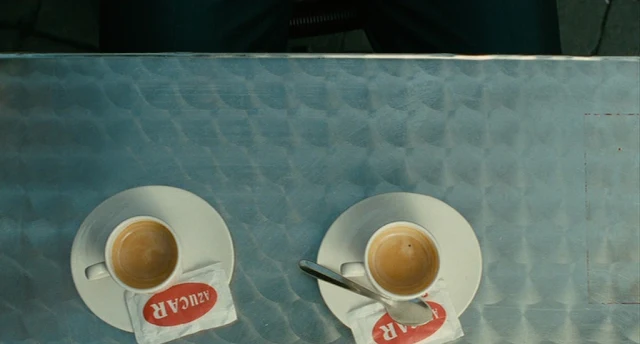 |
| Anaïs Reboux and Roxane Mesquida in Fat Girl |
Human beings develop sexually, both in capability and desire, long before their societies typically allow them to demonstrate the capability and fulfill the desire. Which is the source of much comedy and much drama. As it happens, last night I watched a drama, Catherine Breillat's Fat Girl, and a comedy, the TV series Sex Education, both of which center on the conundrum of adolescent sexuality. I preferred the comedy, in large part because the series created by Laurie Nunn takes what seems to me a more balanced and humane and nuanced view of the subject than the film, which is so provocative and shocking that it verges on nihilism. It's about two sisters, Anaïs (Anaïs Reboux) and Elena (Roxane Mesquida). Elena is 15 and beautiful; Anaïs is 12 and has a weight problem. But the two are close and spend a lot of their time together talking about sex until one day, while on a vacation with the family, Elena is seduced by Fernando (Libero De Rienzo), a law student. The sisters share a room, and on the first night that Fernando sneaks into the room, she lies in her bed pretending to be asleep while Fernando tries to persuade Elena into having sex with him and eventually penetrates her anally. Several nights later, he returns and consummates their relationship, while Anaïs, her back to the couple, silently weeps. When the girls' mother (Arsinée Khanjian) learns of the relationship of Fernando and Elena, she gathers them into the car and begins a harrowing freeway journey, dodging huge trucks, back to their home near Paris. Exhausted by driving, she pulls into a rest stop to sleep. Elena dozes off, too, but Anaïs stays awake until suddenly a man smashes the windshield and kills Elena and the mother. Anaïs flees into a nearby wooded area where the man rapes her. But when the police arrive at the scene, Anaïs claims that she wasn't raped and the film ends. Interpretations abound of this disturbing film, ranging from the extreme feminist view that all penetrative sex is rape to a more conventional view that it's our culture that views sex and violence as equivalents. But my own view is that Fat Girl (the original French title is À ma soeur! -- "for my sister") fails because the violent ending doesn't follow the first part of the film with any dramatic logic, but instead feels driven by a desire to provoke and shock. It'
s an effective film in that regard, but one that shows its creator's hand more than it serves our understanding of the characters Breillat has so effectively created and developed.








